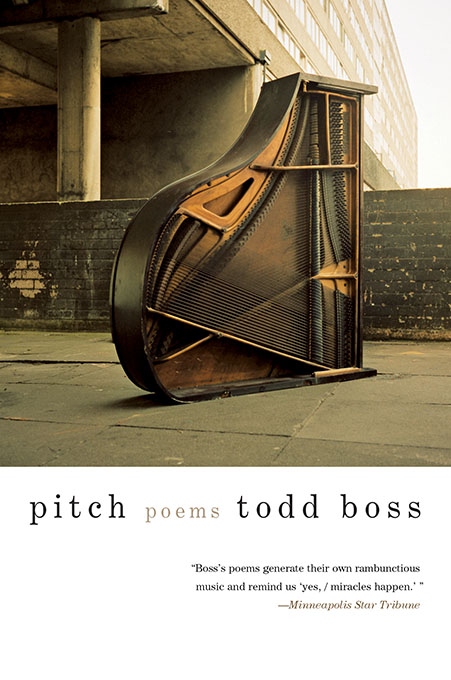 ALSO BY TODD BOSS Yellowrocket PITCH poems Todd Boss
ALSO BY TODD BOSS Yellowrocket PITCH poems Todd Boss  W. W. NORTON & COMPANY NEW YORK LONDON For my parents,
W. W. NORTON & COMPANY NEW YORK LONDON For my parents,
good people Contents Acknowledgments The author gratefully acknowledges the periodicals in which these poems first appeared: Alaska Quarterly Review: The Sky I Die By Will Be Grey Anthills: Lordship Canteen: Amen Dunes Review: A Waltz for the Lovelorn Echoes: To Wait Ecotone: Your Dad Never Did, in the End, Georgia Review: Despair Brings the Dog; My Dog Has No Nose Hampden-Sydney Poetry Review: Today It Seemed I Had Nothing to Say Harvard Review Online: The Ending Is in the Beginning Hawk & Whippoorwill: The God of Our Farm Had Blades Knockout: Marble Tumble Toys; Instrument Metro: To Wait Michigan Quarterly Review: And Then One Day in a Department Store; Blind Poetry: Amidwives: Two Portraits; Call as You Will; Dont Be Flip; It Is Enough to Enter; Should Leash Laws; This Morning in a Morning Voice; Were I to Wring a Rag; The World Is in Pencil Subtropics: Broke Apple Slices was commissioned by American Public Media for syndicated broadcast on The Splendid Table with Lynne Rossetto Kasper. Luckenbach and Marble Tumble Toys aired on Minnesota Public Radios All Things Considered . Several of the poems in this book have been turned into animated shorts by various animation artists at Motionpoems.com. This book was written with the support of a grant from the Minnesota State Arts Board and a residency at Ragdale from the Ragdale Foundation.
I It Is Enough to Enter the templar halls of museums, for example, or the chambers of churches, and admire no more than the beauty there, or remember the graveness of stone, or whatever. You dont have to do any better. You dont have to understand the liturgy or know history to feel holy in a gallery or presbytery. It is enough to have come just so far. You need not be opened any more than does a door, standing ajar. The God of Our Farm Had Blades and a rudder.
All our acres begged its pardon. Merest breezes made its rusty flower turn and whine and shudder. Its wooden arm a weathered stump, the god of our farm no longer pumped the well that once it lorded power over. It belonged to another order. On silent nights in summer,
windows open, many times its vocal powers found me deep in dreams and hauled me up. Unearthly alarm! what ache! How the vane would groan, the rotor churn, and with what moan when a good gust came! It scared me to the bone, as if some inner tower of my own for an unknown water yearned.
Broke We broke horses, broke calves of their mothers milk, broke our hands herding heifers, broke axes and hammers right off their hafts, broke bread with thanks, broke bank accounts, broke our backs over banks of taters and beets, broke beets from their greens, broke peas from their pods, broke the silence of night with a little something spoke, broke necks of mice that got in our traps, broke the ice in the tank so the stock could drink, broke chickens with a twist of fists, broke their yolks into breakfasts, broke wide our wallets for the offering plate, broke the stitching on our Bibles spines, broke harsh north winds with lines of pines, and then, when all was said and done, we broke the bonds of earthly toil when by our work wed been broke down, and, over the soil that mended where we lay, there ended one, then broke another day. Were I to Wring a Rag no matter how much muscle I might have musteredmy mother was like to come along behind me, reach around me to take it up again from where Id left it, lift it back into my line of vision and in one practiced motion from that strangle in her bare hands and thin air work a second miraculous stream of silver dishwash into the days last gleam... Apple Slices eaten right off the jackknife in moons, half-moons, quarter-moons and crescents still summon common summer afternoons I spent as my dads jobsite grunt, framing future neighbors houses out of 2x4s and 4x6s, and our brief and silent pick up tailgate lunch box lunch breaks of link sausage, longhorn cheddar, larder pickles, cold leftover roast-beef and-butter sandwiches wrapped in paper, a couple of pippins from the Fall Crick Pick n Save, and flavored of tin from the lip of the cup of a dented thermos passed between us a hard-earned share of still-chill well water... Now so many waned and waxed moons later, another well-paid, well-fed, college bred paper-pusher, I wonder that Ive never labored harder, nor eaten better. Overtures on an Overturned Piano i. From farm to farm and one more midnight mile to go my father took too fast the last turn on black ice and presto, over the side of our half ton Ford and into the drainway went my fathers fathers brothers turn-of-the-century Steinway piano.
My mothers scream out-screamed the weather-allsshe cursed him, cursed him again, cursed him in the worst way, then cursed him in the first way again as we careened around in a sudden Y and our hi-beams played across the gleaming bed of snowdrifted bramble where it lay, moaning chaotically in every key, miraculously intact (yes, miracles happen) only scratched, in fact, one foreleg broken. And part of me still sits on that bench seat, as if on a line above the stave, top heavy with gravity and levity alike, twisted, peering wake eyed through the melt blear scrawled across the rear glass, trying to pound it into my head the broken cords, the empty bed while she let go, Winter did, her sheets and sheets of December, and started in on January instead. ii.... and then two men in a Chevy Chevette show up, as if in a big top, and jump out to help, and some how, between the three of them, they lift it from bed to bed, like an invalid or a comrade fallen. Two men with muscle enough for the un planned rescue of a horizontal vertigrand What are the chances of that? my mother years later still marvels, the chances of it seeming, when she says it, so slim, so remote, that even my father, narrow of shoulder, lean of arm, seems saved by a whim of grace. iii. iii.
Fine I wonder what it was like to have to call his dad on the phone the morning after and answer the question: So, piano make it home all right? The thing was a loaner, after all, not a keeper, the elder farmers finest stick of furniture. My dad had merely agreed to hold it for his older brother (my uncle), who played it but whod moved too far away (Salt Lake) to take it. Its difficult, caught short by a father, for any son to fake it, even over the phone. You go it alone. Its like hitting a wrong note while rehearsingthe whole house hears it / has to try to hear through (and by hearing, heal) the broken melody line. probably... gonna be fine. iv. iv.
Pitch Freud would say he did it on purpose my father who couldnt hold a tune if it had handles, reins, and a canvas shoulder harness that he towed the inscrutable implement a hundred miles and then, on the last one, took a corner like a chance lifting his foot from pedal to pedal too late, too abruptly to sustain the indelicate balance of instrument and machine and let the weighty symbol of his brothers favored status as the family artist pitchsmashing it to bits by simply giving it overthe Brahms, the Bach, and the Bartkand if its true, if thats what he actually meant to do to finally dramatically silence that music, to ditch some child hood inequality hes never spoken candidly of, to measure the in-betweens in smithereens if its trueit would open a lid, of a kind, on what treble and what bass things are strung, one by one combined, in the dark wooden box of his mind. II The Ending Is in the Beginning of this first movement of Suite No. 3 in C major for solo cello by Bach. Its lovely and sad, how it knows itself, knows its own closing as it opens. Sad, and also exhilarating, how every moment of it seems part of the ending, how halfway through, you get the feeling the ending has long ago begun so that as youre listening you hear the work end, then end againthen end another way and anotherthen find a new kind of ending and add an ending to that ending that seems to end things once and for allthen fall into what can only be the end of endings. And you know it when it comes, that final finale.
Next page

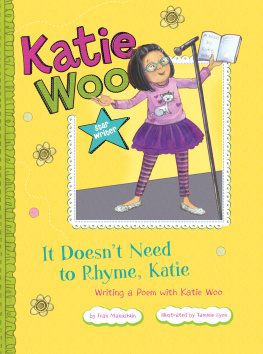
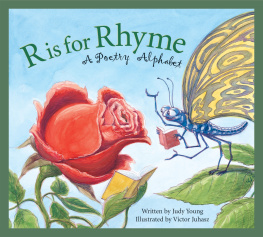
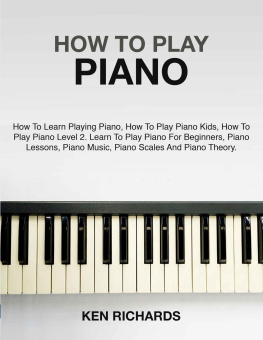
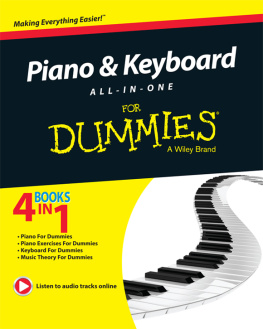

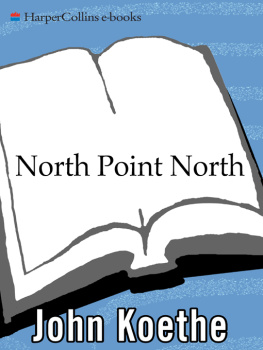
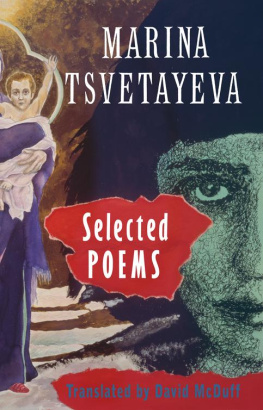
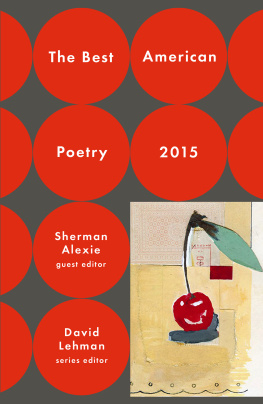
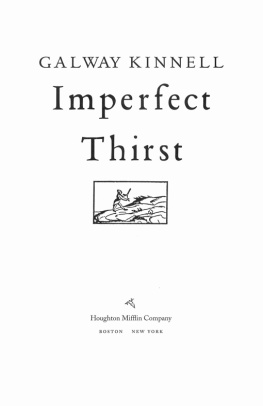
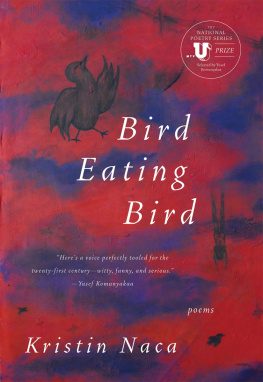
 ALSO BY TODD BOSS Yellowrocket PITCH poems Todd Boss
ALSO BY TODD BOSS Yellowrocket PITCH poems Todd Boss  W. W. NORTON & COMPANY NEW YORK LONDON For my parents,
W. W. NORTON & COMPANY NEW YORK LONDON For my parents,